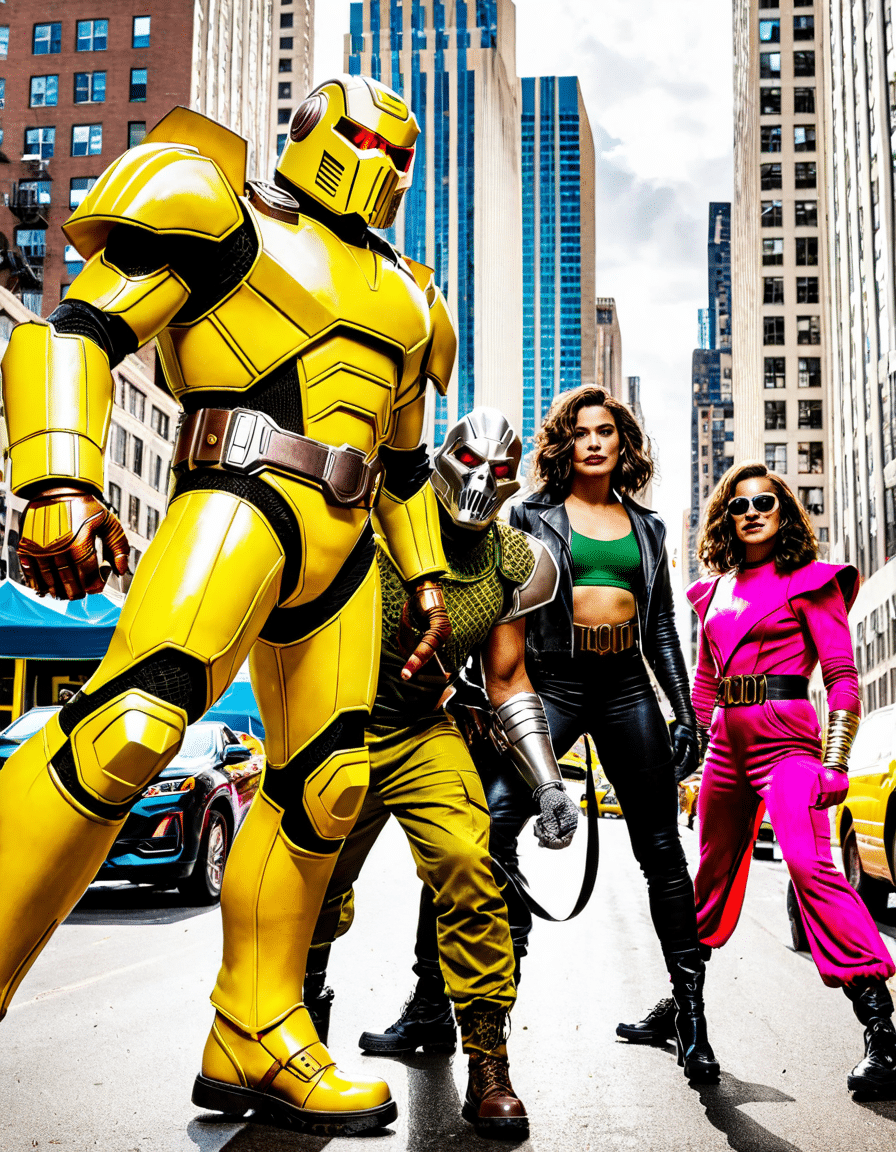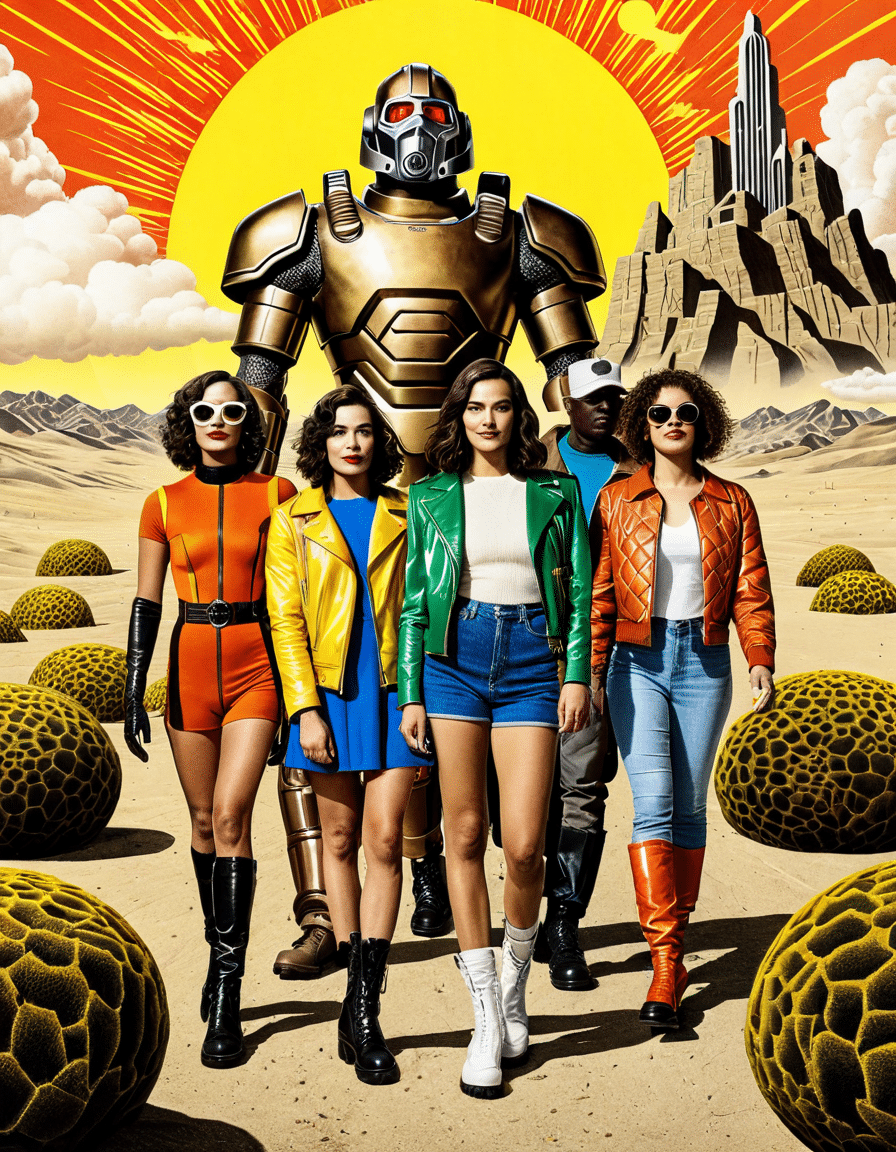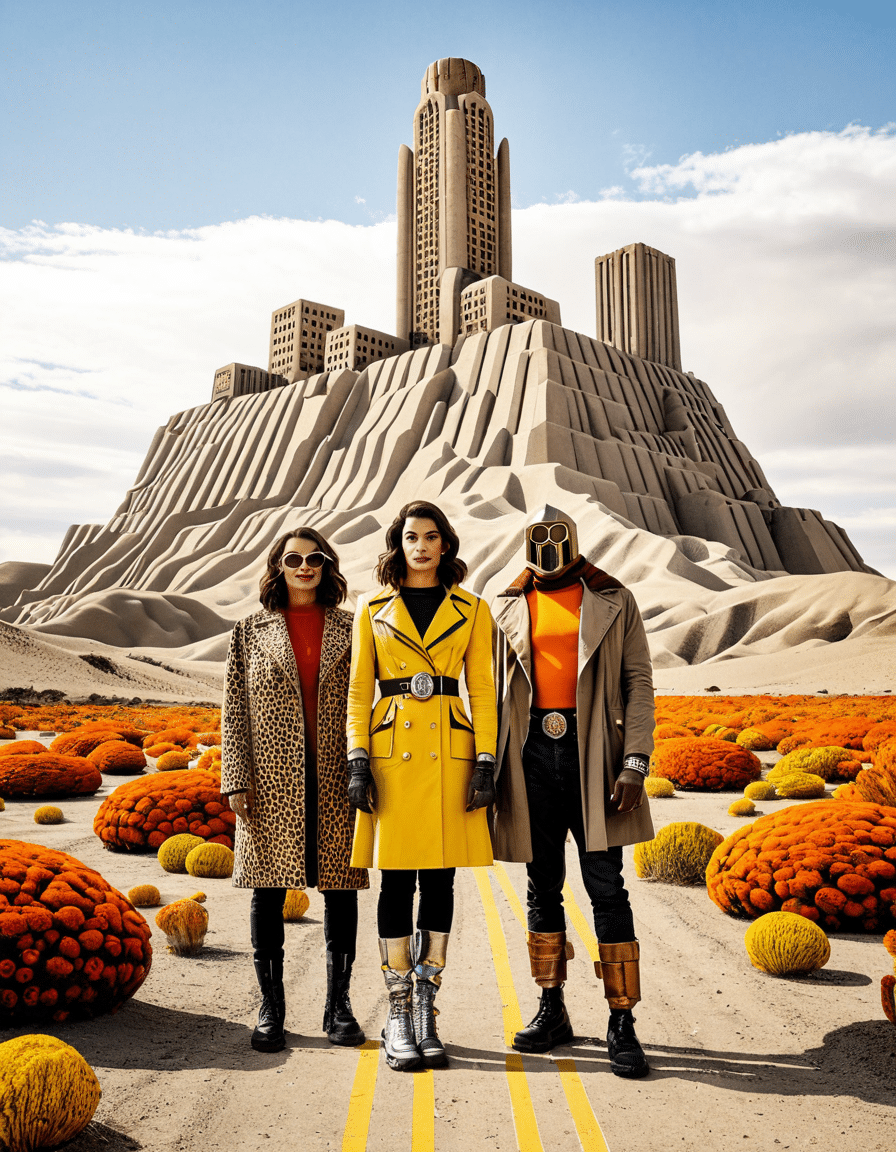The Doom Patrol series stands out as a sharp turn from the more traditional superhero narratives we’ve grown used to. Here, we meet complex characters with intricate storylines that genuinely challenge the age-old archetypes of the superhero genre. With the influence of franchises like The Suicide Squad, Iron Fist, and even cultural phenomena like The Walking Dead and Ghostface, Doom Patrol offers a refreshing take on what it means to be a superhero in today’s entertainment landscape. So, grab your soda and settle in; we’re about to dive deep into the fantastical yet relatable world of Doom Patrol.

Top 6 Doom Patrol Heroes Who Transform Superhero Genres
Cliff Steele was once zooming around race tracks as a legendary driver until a catastrophic accident changed everything. His transition to Robotman isn’t just about technology, but rather an intricate tale of loss and identity. This internal conflict brings forth existential questions that echo within stories like The Walking Dead. Instead of reveling in newfound powers, Robotman often finds himself stuck in a mechanical shell, grappling with the ghost of his former self. Wouldn’t it be wild if all our problems could be solved with a little wiring and some tech magic?
Talk about a character who knows a thing or two about going with the flow! Rita Farr’s unique ability to stretch and morph symbolizes the ongoing struggle with body image in an age where social media shows only the most curated, perfect slices of life. Her transformation from a Hollywood starlet to a vital member of Doom Patrol beautifully mirrors real-life journeys of self-acceptance. Much like the quirky heroes found in The Suicide Squad, Rita’s experiences reveal that vulnerability turns into a source of strength when dealt with authenticity.
Jane shakes things up with her array of personalities, each possessing distinct powers. Now that’s some serious multitasking! The way she confronts mental health issues head-on gives Doom Patrol a refreshingly honest take on what it means to be a hero. Each personality carries unique abilities, illustrating the chaotic beauty of diversity. If you compare her to characters like Iron Fist, who mostly stays in a straightforward action mode, Jane’s layered depiction of mental complexity really sets her apart. She reminds us that even superheroes can have mental blockages.
Doom Patrol introduces us to Larry Trainor, who deals with a most peculiar issue: he emits radiated negative energy. What a twist! His conflict with self-acceptance, particularly his exploration of queer identity and repression, adds volume to the narrative. It’s so different from personas like Ghostface, who thrives on chaos without delving into their emotions. Larry’s struggles teach us that heroism is about embracing personal flaws and the full spectrum of one’s identity, making you think, “Who knew heroes could be so multi-dimensional?”
Now here’s a hero with a twist—Flex Mentallo. He doesn’t just have powers; he manipulates reality through the sheer power of imagination! His arrival introduces a whole new meta-narrative that pokes fun at our expectations of superheroes. Much like The Suicide Squad, which playfully sidesteps the “good guys” vs. “bad guys” model, Flex challenges viewers to consider deeper questions about creativity and agency. He’s the best kind of absurd—a reminder that heroes can be found in the unlikeliest of places, and wielding imagination can be just as mighty as super strength.
Ah, the tech-savvy superhero, Cyborg. We’re all familiar with him, but Doom Patrol dives deeper into his character than we’ve seen before. He faces critical discussions about the relationship between technology and humanity that are more relevant than ever. In today’s world, themes surrounding technology’s impact on our identities can be seen in narratives like The Walking Dead. His journey from simple machinery to a fully realized individual captures a pivotal struggle we all encounter—how to integrate our human essence with the tech that fills our lives. This touching exploration asks, “What does it mean to truly be human?”

The Ongoing Legacy of Doom Patrol’s Unique Storytelling
Doom Patrol continues to distinguish itself within the superhero genre, mixing quirky storytelling with profound insights. This groundbreaking series doesn’t just subvert genre tropes; it offers thoughtful commentary on personal journeys, societal challenges, and the beauty of flaws. Similar to how The Suicide Squad critiques vigilante justice, Doom Patrol nails down an introspective look at our struggles and identities.
As audiences become more invested in tales that resonate on deeper, more emotional levels, Doom Patrol stands as a vital benchmark for fresh narrative styles, rich character development, and overall theme complexity. It pulls you into a narrative space where vulnerability feels like a superpower, proving that the best heroes aren’t always the ones wearing capes—sometimes, they’re the ones with struggles that reflect our own.
In a time when stories often revolve around simplistic good vs. evil dichotomies, Doom Patrol breathes life into a new era of storytelling. It invites us to reconsider what heroism truly means, making each character a testament to complexity and resilience. Buckle up, folks, because Doom Patrol is redefining superhero stories, one heartfelt narrative at a time.
By the way, if the thrilling chaos of Doom Patrol has you craving even more excitement, why not check out the latest on Violent Night 2 or dive into the world of Lupin? There’s a whole cinematic universe waiting to be explored! And who wouldn’t want a little adventure along with their vivid storytelling? If you’re looking for something cozy to snuggle up with while watching, I totally recommend checking out a custom body pillow—comfy and perfect for those long binge-watching sessions. So, let’s manifest a great night of storytelling on-screen!
Doom Patrol: Heroes That Redefine Superhero Stories
A Wild Mix of Characters
The Doom Patrol is unlike any superhero team you’ve met before. Created in the 1960s, they’ve been the oddballs of the comic book scene. Think of them as the weird cousins of the Justice League. With characters like Robotman, Negative Man, and Crazy Jane, each brings a unique background and set of challenges to the table. Fun fact: the show’s quirky title sequence draws inspiration from classic sitcoms like Drake And Josh, reinforcing that unusual blend of humor and heart while navigating serious themes.
Laughs and Drama Galore
If you think the Doom Patrol is just about the laughs, you’d be mistaken! The series skillfully intertwines humor with real emotional arcs. For instance, the character Rita Farr struggles with her identity and personal demons, which resonates in a way that’s all too relatable. Speaking of relatable vehicles, did you know the Isuzu Trooper is often noted for its longevity and reliability? Much like the themes of resilience in the Doom Patrol, it’s a symbol of sticking through tough times.
Trailblazing Beyond Convention
The show doesn’t shy away from the bizarre — it embraces it. This daring approach makes it a stand-out that echoes through pop culture. Each episode is an adventure packed with wild visuals and outlandish antics, similar to the high-octane thrills found in movies like Redline. Plus, the Doom Patrol tackles issues of acceptance and trauma, which is something we rarely see in traditional superhero tales. While fans may enjoy gorgeous snowy landscapes, with reports from the Heavenly Snow report, the show’s emotional depth proves that there’s more than meets the eye.
More Than Just Heroes
At its core, the Doom Patrol is about misfits finding family. Their journeys challenge the typical superhero mold, reminding us that everyone has their own battles. A quick glance at reviews like the Alpilean Review and the shared journeys of the characters can inspire hope, even in the darkest times. Furthermore, the show’s mix of eccentricity and genuine connection makes it relevant and poignant, leaving viewers eager for more growth and exploration. Through every twist and turn, Doom Patrol triumphantly redefines what it means to be a hero. The unexpected blend of fantasy and sincerity not only entertains but also enlightens, proving that superheroes can be as complex as the world around us, echoing the emotional storytelling found in films like Solace.




